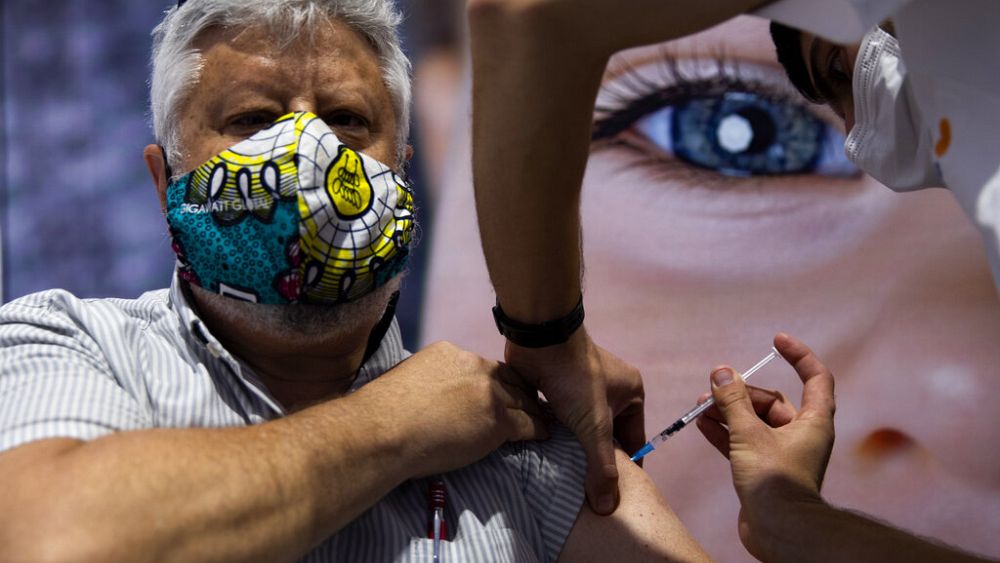
The European Medicines Agency has issued guidelines to coronavirus vaccine manufacturers who intend to adapt already authorized vaccines to new variants.
The EU regulator says the three authorized vaccines, developed by Pfizer, Moderna and AstraZeneca, “provide protection against variants that are currently widespread in Europe”.
However, it appears that with the advent of continuous mutations and new variants, authorized vaccines should be adapted in a timely manner to ensure continued protection.
The variant of greatest concern today is the one that first appeared in South Africa because of evidence that it could reduce the effectiveness of vaccines. And the so-called British and Brazilian variants are spreading rapidly.
The EMA says its experts have worked to assume that the adjusted vaccine would work in the same way as the original vaccine, except for a change in the part that triggers the body’s immune response.
It is said that “large-scale safety and efficacy studies are not required”, but at least one clinical study is recommended in people who have not been vaccinated or infected with coronavirus.
The agency also suggested a study involving a small group randomly selected to receive either the parent or the vaccine variant to ensure that both trigger similar immune responses.
It is said that studies should be carried out on the use of adjusted vaccines as a protection vaccine against variants and producers are expected to provide data on the quality of production of adjusted vaccines.
Pfizer is studying the third vaccine
The new direction comes as Pfizer began studying whether a third dose of its COVID-19 vaccine could provide protection against mutant versions of the virus, the company said on Thursday.
The pharmaceutical giant said it would provide the third dose for 144 volunteers among participants in the initial vaccine testing in the United States last year.
He wants to determine if an additional booster vaccine given six to 12 months after the first two doses would boost the immune system enough to prevent a mutant virus.
“Although we have not seen any evidence that circulating variants lead to the loss of the protection offered by our vaccine, we are taking several steps to act decisively and be ready if a strain becomes resistant to the protection offered by the vaccine,” said Albert Bourla , CEO of Pfizer, in a press release.
“This booster study is essential to understanding the safety of a third dose and immunity against circulating strains,” he added.
Pharmaceutical giants working on updated prescriptions
In parallel, Pfizer and its German partner, BioNTech, are also changing their vaccine prescriptions.
The companies said they were in talks with US and EU regulators about a “study to evaluate a variant-specific vaccine that has a modified mRNA sequence. This study would use a new construction of the Pfizer-BioNTech vaccine based on the B.1.351 line first identified in South Africa. “
Competitor Pfizer, Moderna, already announced on Wednesday that it is ready to test experimental doses of its vaccine that are better suited to the South African version of the virus.
Pfizer and Moderna coronavirus vaccines use so-called easily up-to-date mRNA technology. Their vaccines use a piece of genetic code for the spike protein that covers the virus, so the immune system can learn to recognize and fight the real thing.
If there is a variant with a mutated peak protein that the original vaccine cannot recognize, companies would change that piece of genetic code for a better fit – if and when regulators decide it is necessary.
But modifying other coronavirus vaccines could be more complex. AstraZeneca, for example, uses a harmless version of a cold virus to carry that spike protein gene into the body. An update would require the growth of cold viruses with the updated spike gene.
The US regulator said studies on updated COVID-19 vaccines will not have to be as large or as long as for the first generation of photos. Instead, several hundred volunteers could receive experimental doses of a modified vaccine to see if their immune system reacts similarly to the updated photo as well as the original.